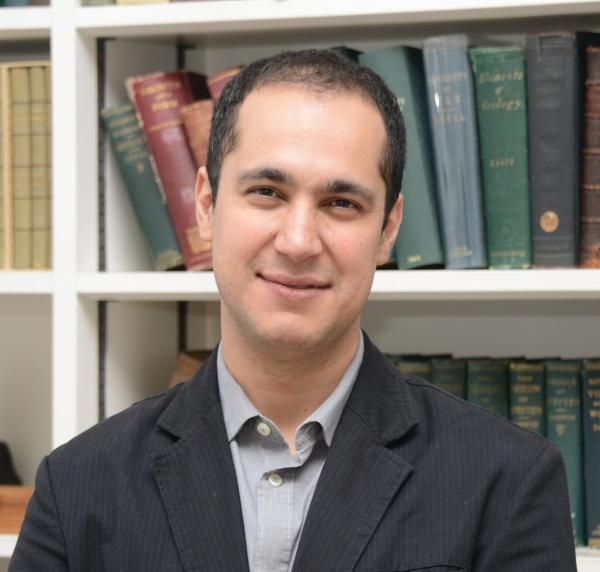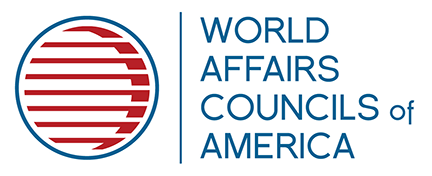
Mideast Water: When The Well Runs Dry
Kaveh Madani, Ph.D.
Visiting Professor, Centre for Environmental Policy, Imperial College London
Henry Hart Rice Senior Fellow at the MacMillan Center for International and Area Studies, Yale University
Former Vice President of the United Nations Environment Assembly Bureau, former Deputy Head of Iran’s Department of Environment
November 9, 2023
Dennos Museum Center Milliken Auditorium
In person & online
Thursday, November 9, 2023
6:30 PM Eastern US program // 5:30 PM reception
Dennos Museum Center Milliken Auditorium
1701 E. Front St. Traverse City, MI
Hybrid event // in-person audience and online livestream.
In-person admission // purchase admission here in advance (recommended) or at the door if available. $15 per person.
Online admission // register here for online livestream access. $10 per person. Registration closes 1 hour prior to event start.
Students & educators // free admission for current students and educators, including NMC and area secondary schools.
Members //
IAF members do not need to purchase tickets. Members make these programs possible via membership gifts. Thank you.
About the Speaker
Dr. Kaveh Madani is Visiting Professor at the Centre for Environmental Policy (CEP), Imperial College London
Henry Hart Rice Senior Fellow at the MacMillan Center for International and Area Studies, Yale University
https://www.imperial.ac.uk/people/k.madani
Professor Kaveh Madani is an environmental scientist, educator, and activist, working at the interface of science, policy, and society. He is currently a Visiting Professor at the Centre for Environmental Policy (CEP) of Imperial College London and a Henry Hart Rice Senior Fellow at the MacMillan Center for International and Area Studies at Yale University. He has previously served as the Deputy Vice President of Iran in his position as the Deputy Head of Iran’s Department of Environment, the Vice President of the UN Environment Assembly Bureau, and Chief of Iran’s Department of Environment’s International Affairs and Conventions Center.
Madani has received several awards and recognitions for his fundamental research contributions, teaching innovations, as well as outreach and humanitarian activities. Among these are the 2012 recognition by the American Society of Civil Engineers (ASCE) as one of the ten New Faces of Civil Engineering for ‘work and personal achievements representing the bold and humanitarian future of civil engineering’, Arne Richter Award for Outstanding Young Scientists by the European Geosciences Union (EGU) in 2016 for ‘fundamental contributions to integrating game theory and decision analysis into water management models’, and the ASCE’s Walter Huber Civil Engineering Research Prize in 2017 for “ground-breaking research in developing methods for the allocation of scarce water resources merging conflict-resolution and game-theoretic concepts for application to complex water resources systems” and “outstanding leadership in the application of systems analysis to environmental, water and energy resource problems.”
Madani's work is focused on complex human-natural systems. He is an expert in developing and applying a range of mathematical, economic, and systems analysis models to complex problems involving water, energy, food, climate and environment to derive policy and governance insights. He has co-authored nearly 200 publications with his students and colleagues out of their work in North America, Europe, Africa, Asia and Middle East on issues such as water management, environmental policy, energy systems, food security, climate change impacts and adaptation, sustainable development, and transboundary-conflicts and negotiations.
Madani has been successful in bridging the gap between academic theory and practice by addressing progressive and socially significant problems and by communicating his findings not only to other researchers and policy makers, but also to the public, in order to raise awareness around key environmental issues. He frequently appears in the media and has been featured in different environmental documentaries.
He has held different strategic roles during his public service as a politician, including serving as the Chair of the National Committee on International Climate Change Negotiations, Vice President of the National Committee of Sustainable Development, Elected Member of the Supreme Council of Iran’s House of Farmers, Technical Committee Member of Iran’s Supreme Water Council, Strategic Committee Member of the Lake Urmia Restoration Task Force, Member of the Iran-Afghanistan Negotiations Workgroup on Water, and member of the Science, Research and Technology Commission in the President’s Office. He also oversaw the College of Environment, Iran’s oldest school on environmental training and research, with both undergraduate and post-graduate students, as well as the country’s Research Center for Sustainable Development and Environment Research.
Being in charge of the international relations of Iran’s Department of Environment, in his diplomatic role, Madani led Iran’s delegation in different major intergovernmental meetings and negotiations, including the 23rd United Nations Climate Change Conference (COP23), 3rd Session of the United Nations Environment Assembly (UNEA-3), One Planet Summit, 2017 Asia Pacific Carbon Forum (APCF 2017), and Asia-Pacific Civil Society Forum on Sustainable Development 2018. In UNEA-3, he was elected as the Vice President of the UN Environment Assembly Bureau on behalf of the Asia-Pacific countries, securing a seat for Iran at that level for the first time. Madani was a High Level Group Member of Global Environment Outlook of UNEP and has been a contributor to the United Nations Environmental Management Group’s (UN EMG) Nexus Dialogues Series on the adoption of the 2030 Agenda and Sustainable Development Goals (SDGs). He has interacted with various other international and intergovernmental organizations such as World Bank, FAO, UNESCO, UNDP, and ISESCO, and was influential in shaping UN ESCAP’s efforts on combating sand and dust storms in the Asia-Pacific region.
He has a Ph.D. in Civil and Environmental Engineering from the University of California, Davis, Master of Water Resources from the Lund University and B.Sc. in Civil Engineering from the University of Tabriz, and has done his post-doctoral research in Environmental Economics and Policy at the Water Science and Policy Center at the University of California, Riverside. He is currently serving as the Associate Editor of the Journal of Water Resources Planning and Management and was an associate editor of Sustainable Cities and Society between 2015 and 2017.
He has been working at Imperial College as a Lecturer in Environmental Management (2013-2015), Senior Lecturer in Environmental Management (2015-2016), and Reader in Systems Analysis and Policy (2016-2017). After entering political and diplomatic world, he has been working with CEP as a Visiting Reader (2017-2018) and then a Visiting Professor (2018-present). He served as the CEP's Director of Alumni from 2014 to 2017.
Prior to joining Imperial College in 2013, he was an Assistant Professor of Civil, Environmental, and Construction Engineering and an Alex Alexander Fellow at the University of Central Florida (UCF), where he founded and directed the Hydro-Environmental & Energy Systems Analysis (HEESA) Research Group. He served as the Founding Director of WaterSISWEB (2008-2017) and was affiliated with the Iran 2040 Project at Stanford University (2016-2017). Over his career, he has held research and teaching positions at different universities around the world, including Stockholm University, Cornell University, Lund University, UC Irvine, UC Davis, UC Riverside, K.N.Toosi University of Technology, and Dalian University of Technology.






















